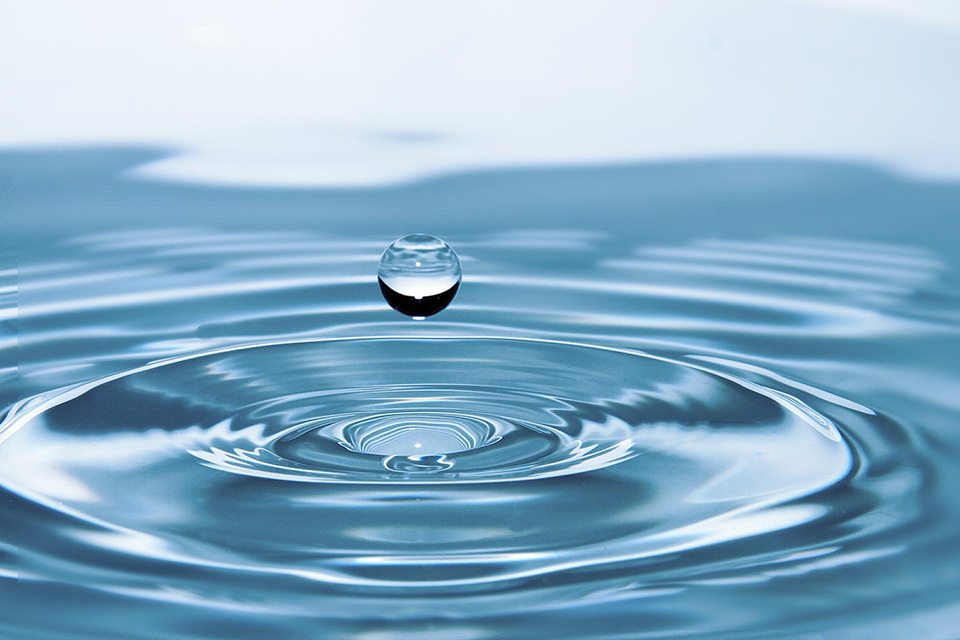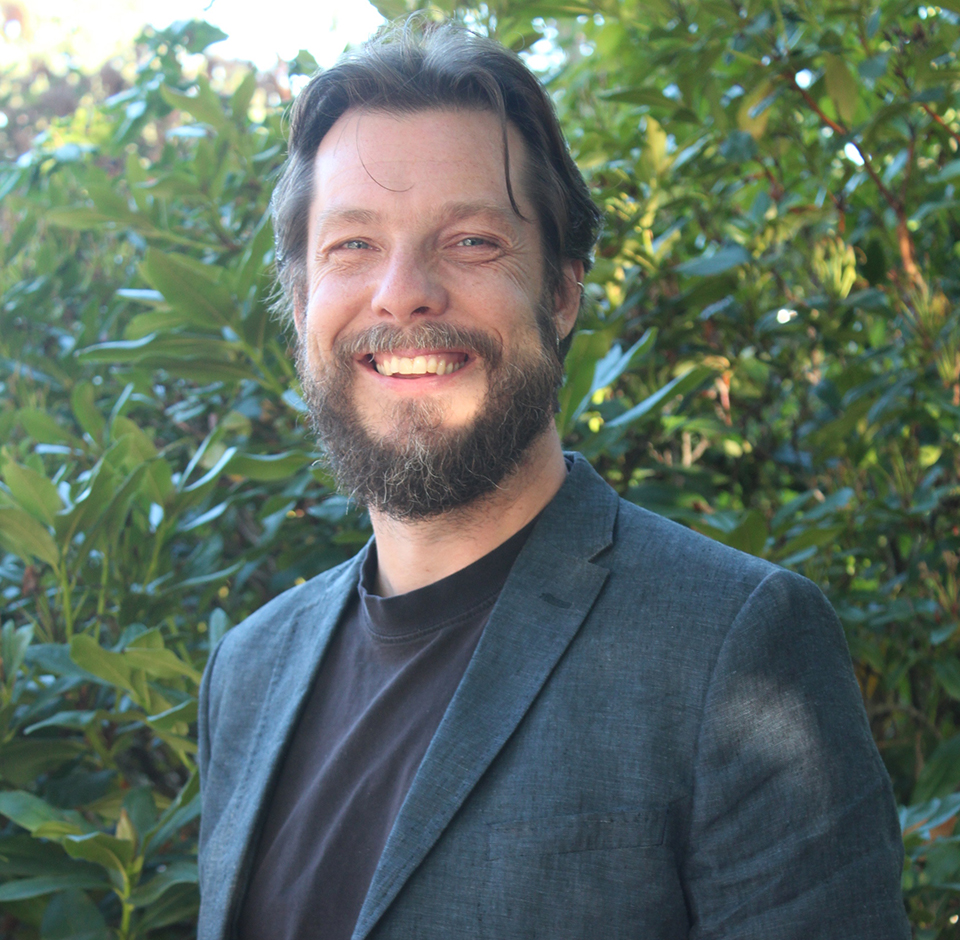Expert Q&A on water crisis amidst climate change
Law, Social Sciences, Human and Social Development

The threat to water security is just as urgent as the climate crisis, says Oliver M. Brandes, project lead of the POLIS Water Sustainability Project at the University of Victoria. For more than 20 years, Brandes has worked with UVic researchers, students and collaborators, as well as government committees, community members and other partners to raise the alarm while continuing to nourish a sense of hope.
The climate crisis is a water crisis. Too much carbon in the atmosphere is shifting the baselines and is changing the world we’re living in.
—Oliver M. Brandes, project lead of the POLIS Water Sustainability Project at UVic and co-chair of FLOW, a national leadership forum
Brandes, an economist and lawyer by training, is co-director of the POLIS Project on Ecological Governance, based at UVic’s Centre for Global Studies (CFGS), where he leads its award-winning water sustainability project, and serves as associate director of CFGS. Among other affiliations, Brandes is an adjunct in the Faculty of Law and School of Public Administration, and serves as a technical advisor to the BC Ministry of Environment and Climate Change Strategy and the newly formed Ministry of Land, Water and Resource Stewardship, supporting the ongoing development and implementation of the province’s Water Sustainability Act, and is a founding member and current chair of the Forum for Leadership on Water (FLOW).
FLOW recently released an open letter calling on Prime Minister Justin Trudeau to acknowledge the “climate crisis as a water crisis.”
Q. What is your biggest fear about the water crisis?
A. My fear is that we will miss the opportunities.
In Canada, certainly on the West Coast, we are somewhat fortunate in the sense we aren’t yet over the cliff. We might be approaching the cliff, but we’re not yet over it.
My fear is that people are going to realize too late the real opportunities ahead of us to transform our societies, governance and policies, and thus build the necessary resilience to help secure our future both for us and our children.
Q. What worries you from a global context about social injustice and water security?
A. We become more polarized when we’re under pressure. People’s resilience is rapidly diminishing. For instance, food security concerns get amplified when we have to make difficult trade-offs. Whether it’s choosing between growing enough food, developing better housing, addressing immigration issues or dealing with famine and economic stability, the list goes on. Water is always this unbelievably important connector issue.
There are all kinds of different approaches globally to how people interact with water. Different cultures have different ways of looking at water and the values that underpin perception and priorities. And that’s an important aspect of thinking about creative solutions. Western science with a colonial mindset won’t get us out of this.
On a very human and biological level, we have to find a way to share. If we eliminate or exclude others from use or access to water, the consequences are so significant that they’re not actually tenable.
—Brandes
And we see a lot of the international challenges—whether it is war or famine and migration—often being initiated because of an imbalance or shifting in local water availability or access.
The [water wars thesis] claimed a number of years ago that the next wars would be fought over water. But the evidence points the other way. If we look historically, that’s rarely been the case. Because water is one of the things that is existential—so significant—that it is one of the places we as a species collaborate, where nations that don’t normally get along very well will find ways to build relationships. Being a good neighbour, being communal, being a good part of community, often ties into water in some way.
Q. What are some tangible steps that government at all levels (local, Indigenous, provincial, federal) can take to move toward ensuring a sustainable freshwater future?
A. Water is often a hidden aspect of issues such as food security, modern land-use planning, species at risk, quality of life and prosperity. There’s often this underlying piece to water sustainability that gets forgotten.
Upstream, downstream, groundwater, surface water, our neighbours’ water—it flows, it’s constantly in motion, it’s dynamic. And our laws and institutions and the role of governments have been bedeviled by how to integrate all the components.
—Brandes
The technical answers are largely understood. What we’re missing is the ability to make a shift and make tough choices. It means source protection for drinking water; it means establishing rules so we don’t have mining and logging and ATVs driving through the watersheds.
A basic concept in good governance is that those who are impacted must have a say in these decisions. There must be a fundamental recognition about water being so critical to all life and cultures that co-governance is not only needed, but critical. Shared authority of the Crown and Indigenous Nations is a fundamental pillar to a more sustainable, resilient and secure future going forward.
Q. The BC and federal governments both recently released their budgets. What looks promising for water security, in your opinion, and are there any gaps?
A. You can see a tale of two kinds of approaches to investment.
The provincial government’s investment in restoring wetlands, streams and local water bodies is promising. Last year, it was $27M and, for BC, this was a big infusion relative to what we’ve seen in the last decades. And it has been renewed, so that’s another $30M for a total of $57M over the last two years and a clear commitment that this is just a starting point.
The federal government could do a lot more and has been historically light on its water roles and responsibilities. Canada’s Water Act is 50 years old and largely forgotten. Previously there was also a commitment to $1B over the next 10 years to help address some of the freshwater challenges—that’s $100M a year minimum—but this budget did not have that. Instead, it only has a placeholder of around $20M to just keep the status quo in place.
We have a lot of work ahead of us. I’d like to see the federal government be bolder and I’d like to see the provincial government take advantage of its early investment and really leverage it and build on it—maybe even become a national or continental leader.
Q. What can people do in their daily lives to help avoid an escalating water crisis?
A. We know about being mindful on so many levels. But water is one of those things that’s easy to take for granted, especially on the coast where drought is often immediately followed by rain. In this context of wild extremes, it is very easy to forget and just assume things will be fine without making any of the real changes we will ultimately need to do.

Outdated appliances, water-guzzling showers, and profligate outdoor water use—things like using fresh water to recreate a landscape and maintaining extensive lawns in the middle of summer have huge water implications. If we’re talking about system change, we have to change the incentives and priorities. And that’s our role, not just as individuals, but as citizens. As individuals, we can make choices and be more stewardship oriented, but ultimately it must be about collective action.
It’s about empowering the leaders who want to be bold and are prepared to make hard trade-offs and really make the tough choices to ensure we begin the system changes and ensure the solutions we put in place—the rules, regulations, legal protections and local decision-making—remain durable even as circumstances and our climate continues to change.
I encourage anybody to join local initiatives—like local watershed stewardship groups or friends of the local lake or stream. It’s a remarkably powerful way to draw people together.
We need to move from citizenship to hydro-citizenship.
Q. The topic of water security and freshwater access aligns with many of the 17 UN Sustainable Development Goals, the global blueprint for action to which UVic is committed. What role can we—especially students—play in fulfilling these broad and aspirational ambitions?
A. The SDGs are about demonstrating ambition. The more that students—and their mentors and communities—can elevate these issues the better. And just the recognition that what they choose to spend their time on for their career really matters. It isn’t about just a pay cheque. It’s about the kind of social and societal impacts they can have. That should be one of the considerations.
Water is one of those topics, no matter someone’s skillset and interests, that has no end of opportunity.
So, to students, I’d say inspire direct action, let’s get the bold promises down. We know what the problems are. We need to drive towards clear actions so that we have abundant water all around us. It’s there, it’s just we’re forgetting it sometimes.
-- 30 --
